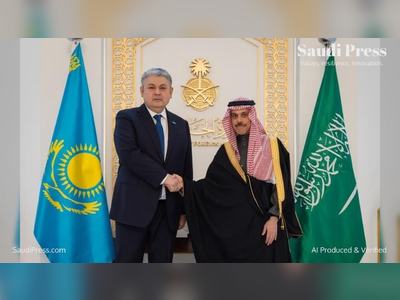
Clear path for EU-Kazakhstan agreement to enter into full force
“We are very happy of course that the ratification process of this agreement is now almost complete,” said Roman Vassilenko, Deputy Minister of Foreign Affairs of Kazakhstan at an EURACTIV event.
The Council will now be able to conclude the ratification process after the Italian Senate approved the deal, often described as “WTO-Plus”, as its chapter on government procurement in essence mirrors the equivalent WTO chapter.
The EPCA also sets a legal framework for cooperation in 29 areas, from international and regional security to trade, investment, development of infrastructure as well as innovation in culture, sport and tourism sectors.
Vassilenko hopes that the agreement will increase the dynamism of the trade relationship, in particular in the field of high-tech products. The EU accounts for almost half of Kazakhstan’s external trade, and remains Kazakhstan’s biggest trade and investment partner.
“Kazakhstan is by far the largest trade partner of the EU in Central Asia”, said Jocelyn Guitton from the Commission’s Directorate-General for Trade. EU-Kazakhstan trade comprises 86% of commerce flows between the bloc and Central Asia. “It is our only significant trade partner in the region”, the official added.
However, about 80% of Kazakhstan’s exports to the EU are fossil fuels, especially oil and gas. Diversification will require connectivity to become one of the key elements of the EU’s new strategy for the region.
Kazakhstan invested heavily into its flagship Nurly Zhol programme, a $9 billion domestic economic stimulus plan to develop and modernise roads, railways, ports, IT infrastructure, education and civil services linked to China’s Belt and Road Initiative.
Kazakhstan is the world’s largest land-locked state. “You’re right in the middle of Central Asia. Some could say it’s in the middle of nowhere but you can also see it as a middle of everywhere”, said the Commission official.
The key issue for Kazakhstan to become more than just a logistical hub. “We believe that the EPCA is a major drive in the medium to long-run to improve the business climate”, which can aid in attracting foreign direct investment to achieve that goal, argued Guitton.
Another area “where we would like to develop cooperation is the set of efforts to promote regional cooperation” in Central Asia commented Philippe van Amersfoort, the European External Action Service’s Deputy Head of division responsible for the region.
“Our interest is to support what we call open regionalism in Central Asia and all forms of cooperation to tackle cross-border challenges”.
Time is indeed ripe for Kazakhstan to become a regional leader. “Kazakhstan right now is a country on the move, economically socially and politically”, said Vassilenko, referring to the economic and social reforms promised by the new president Kassym-Jomart Tokayev.
The second summit of the five Central Asian countries, expected to be announced shortly, will be a good opportunity to exercise leadership in the trade sphere, since only 5% of the volume of trade of the countries of Central Asia is among themselves.
